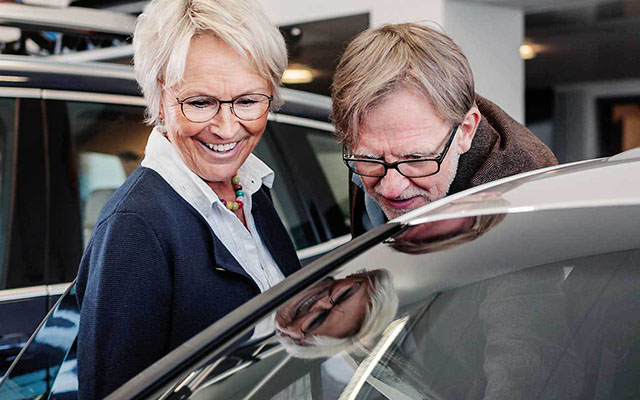
The UK population is, on average, getting older. That means there's more older drivers on Britain's roads.
In fact, in the UK there are lots of people over 70 who hold full driving licences:
- Drivers over 70 - 4 million driving licence holders
- Drivers in their 80s - 1.2 million full licence holders
- Drivers in their 90s - 100,000 full licence holders
- Drivers over 100 - 250 full licence holders
Whatever your age, driving brings freedom and independence. Reaching a new milestone in life isn't a reason to hang up the car keys, but there are a few things you should think about.
What age should you stop driving?
There's no laws that say when you have to stop driving. So it really depends on your health and ability to drive.
Together with your GP, you should have regular check-ups to see if you’re still up for the demands of the road.
We provide 24/7 roadside assistance.
Renewing your licence at 70
Once you hit the age of 70, and every 3 years after that, you’ll need to renew your driving licence. There's no driving licence renewal fee and the DVLA will send you a renewal form 3 months before your birthday.
You won't have to retake your test, but you'll have to declare any medical conditions you have and confirm that you meet the eyesight standards.
If you’re worried about how age might affect your driving, you can book a driver assessment test with the Royal Society for the Prevention of Accidents (RoSPA).
You won't get a pass or fail but they'll feed back any issues they pick up during the session and suggest ways for you to improve.
Are older drivers more dangerous on the road?
Drivers under 20 are more likely to be involved in fatal accidents than those over 70. This is partly because:
- Older drivers limit when and how far they drive, avoiding busy or complex junctions.
- They’re more likely to visit familiar locations like local shops and relatives
- They're more likely to drive at quiet periods and avoid night time driving and rush hour traffic.
Learn about safety for older drivers
Read more
The numbers behind drivers over 70
Owning and driving a vehicle is important to many people for many reasons. A car isn’t just a practical way of getting around - it can also become part of who you are.
If that sounds like you, you're not alone. According to healthcare charity Independent Age:
- 73% of drivers aged 70 and over would feel reluctant to ask friends or family for lifts if they were no longer able to drive.
- 1 in 20 (5%) say they don’t have any friends or family they could ask for a lift.
- 44% of drivers aged 70 and over say they'd feel like they’d lost part of their identity if they couldn't drive.
How to stay safe as an older driver
According to data gathered by the Older Drivers Task Force, "drivers over the age of 70 are less likely to be involved in crashes involving speed, loss of control or alcohol".
These are encouraging signs, but there are extra steps you could take to enjoy your driving life for longer. You can:
- Modify your car to help with any visual or physical ailments.
- Apply for a Blue Badge if you have physical difficulties as it gives you accessible parking.
- Have regular medical and driving assessments.
- Tell the DVLA about any medical conditions that may affect your ability to drive.
We’ve been on the road for over a hundred years and we’re still here to lend a helping hand. Get breakdown cover today and keep your car moving in the right direction.
